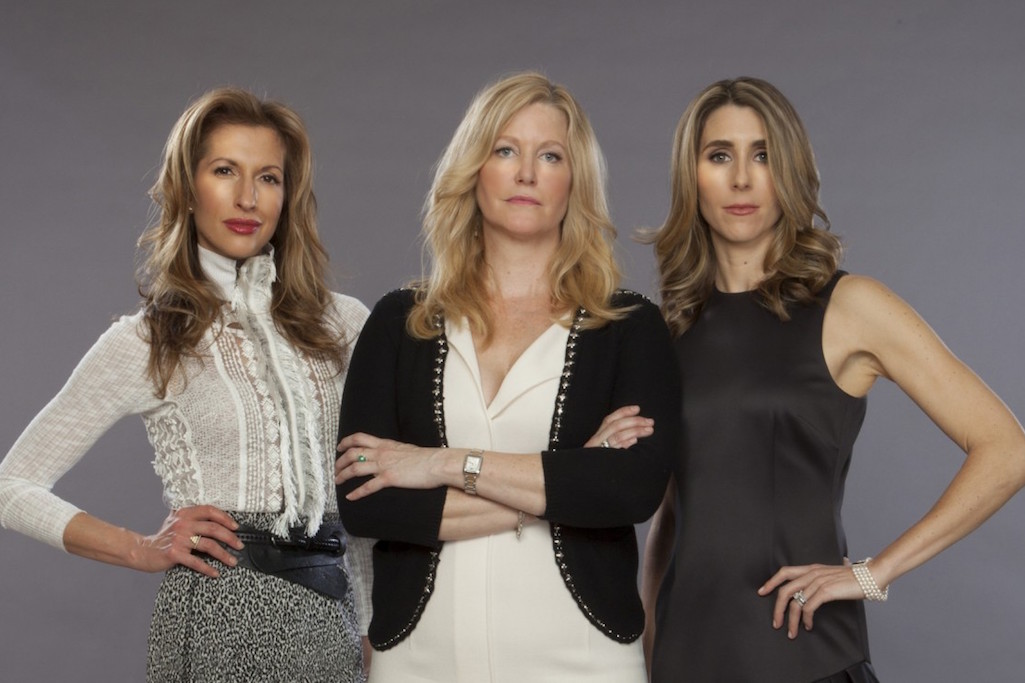‘Equity’ Is The First Female-Led Wall Street Thriller; What Does It Say About Its Women?
They aren't Gordon Gekko or Glengarry Glenn Ross. This is a whole different style of corporate sabotage.

In an early scene in Wall Street thriller Equity, senior investment banker Naomi (Breaking Bad’s Anna Gunn) angles for her retiring boss Randall’s (Lee Tergesen) job of ‘global head’, and gets slapped down with: “This doesn’t look like your year.”
When will it ever be a woman’s year? Equity conflates and condemns capitalism and patriarchy, refusing to judge the moral compromises these rotten conditions require women to make. It exposes Sheryl Sandberg’s Lean In for the liberal-feminist fantasy it is — in Equity, women strive, excel, and yet are still stymied by mediocre men… and each other.
This makes it a much flintier story than familiar you-go-girl parables of female solidarity. And it’s quite deliberately released in the year that a brilliant, well-qualified woman who, like Naomi, “rubs people the wrong way”, is running for US president. But while its story is cynical, its production offers hope. Equity is the first Wall Street movie written, produced, directed by and starring women. It was also largely funded by finance-industry women who wanted to see their lives onscreen — and they’ve made a profit, says producer/co-star Alysia Reiner, “because investing in women is actually a great investment.”
–
Business Thriller Or Feminist Workplace Drama? It’s Both
I’m choosing to call Equity a ‘business thriller’ because so many finance-industry films operate within this genre. It’s easy to compare the thematic concerns of the film with those of Wall Street or Margin Call, and director Meera Menon’s style invites comparisons to the remote, observational work of David Fincher or Steven Soderbergh.
But Equity isn’t a thrilling yarn full of grandstanding speeches and plot twists. And when Naomi tells a women’s networking event, “I like money,” she’s not just being greedy, like Gordon Gekko in a skirt. Finance means something more to these women than it does to men. It means agency and stability. It offers a fuck-off fund: a way to escape bullshit. That’s what makes it so poignant that these characters never do.

It’s a topic Anna Gunn has definitely explored in the past.
Historically, women’s struggles at work have been framed as melodrama or screwball comedy. In films as diverse as All About Eve, Baby Boom, Working Girl, Don’t Tell Mom The Babysitter’s Dead, The Proposal, The Devil Wears Prada, Up In The Air and The Intern, female professionals are depicted as ruthless divas, backstabbing ingénues and neurotic micromanagers. They haplessly juggle work/life commitments or relinquish personal happiness for professional success. They’re trapped between sexist bosses and ambitious subordinates.
The business thriller, by contrast, follows a Machiavellian guru who thrives on making complex, shady deals. A milquetoast (an impressionable young protégé) gets entangled in their machinations then brings about their downfall, or a dedicated law-enforcer punishes their excesses and rebalances the system. But Equity deconstructs the easy moral certainties offered by the genre’s stock characters of guru, milquetoast and regulator.
Naomi is the guru: determined to be the ‘rainmaker’ her firm wants, she sets her sights on convincing English tech douchebag Ed (Samuel Roukin) to let her broker an initial public offer of Ed’s startup, a privacy-focused social network called Cachet. The milquetoast is Naomi’s talented second-in-command, Erin (Sarah Megan Thomas), who’s terrified of revealing her pregnancy. And Samantha (Orange is the New Black‘s Alysia Reiner) is the regulator: a public prosecutor who’s investigating crooked hedge-fund manager Benji (Craig Bierko) and hopes to rekindle her college friendship with Naomi to get the scoop on Benji from Naomi’s lover.
The film’s genre framework sets up certain audience expectations of how these characters will behave, then subverts them. Far from being corrupt or emotionally empty, Naomi is scrupulous and clear-eyed enough to satisfy her own needs in life. She tries to praise and support Erin, even asking her own former mentor for advice on how to handle Erin’s pregnancy. Meanwhile, Erin’s greyhound skittishness disguises a deeply felt self-belief and professional pride. And Samantha’s rule-bending pursuit of Benji has more to do with her love of the chase than any ideals of justice.
–
What To Say, And Who To Say It To
This film could also be called Confidence, because it pivots on acts of confiding and information kept confidential: from Erin’s pregnancy to Naomi’s passwords. The film is about raising money by making public what is private. Even the name of the startup being floated combines ideas of prestige (‘cachet’) and secrecy (caché).
Melodramatic traditions of ‘bitches’ and ‘femmes fatales’ have groomed audiences to expect that women wield power either deceitfully, to undermine others in private, or spectacularly, to intimidate them in public. Equity shows its female characters’ mastery of code-switching: knowing what’s best reserved for front-facing and backchannel communication.
There’s very little Glengarry Glen Ross shouting and swagger here. Naomi does lose her shit when her bro-weasel underling fetches her a cookie that contains “three motherfucking chips” — but it’s not because she’s stressing out and losing control. It’s because mediocre men like him don’t understand how to go above and beyond to anticipate someone else’s desires, because they’ve never had to.
Knowing they risk being branded either emotional and irrational or aggressive and abrasive, these women perform a kind of calm, feminine hyper-competence in front of clients, bosses and colleagues. Watching Naomi, Erin and Samantha absolutely nail this discursive style — the interpersonal equivalent of the crisp, simple, expensive clothes they wear — is one of Equity’s chief pleasures.
More importantly, they’ve mastered the ‘soft skills’ required to get what they want from informal socialising, when what matters is the appearance of unguardedness. But these women can never really trust anyone; and the film is at its most disquieting when it shows them leveraging their sexuality, only to have it used against them.

Although Samantha has a wife and kids at home in Brooklyn, she flirts extravagantly in a bar with Benji’s own milquetoast, Cory (Nate Corddry). Having ridden this rodeo many times, Naomi insists on maintaining an ethical screen between Michael and herself, refusing to talk shop to preserve the integrity of their respective departments at the same bank.
Erin enjoys being able to “handle” Ed’s attentions… until she realises it’s no longer business to him. In a pivotal scene, Erin fatefully decides to turn a backchannel conversation into a front-facing conversation — partly to safeguard the job security she feels is spiralling away from her, and partly to prove to herself she can nail private negotiations with men.
Equity is at its best in the small moments when its characters see one another for who they are and what they want, even as it cautions that women fatally over-invest themselves in ideologies of success. “It’s all just a big game to you, isn’t it?” says a dismayed Naomi to Michael. He snorts and replies, “What else is there?”
–
Equity is in select cinemas now.
–
Mel Campbell is a freelance journalist and cultural critic. She blogs on style, history and culture at Footpath Zeitgeist and tweets at @incrediblemelk.